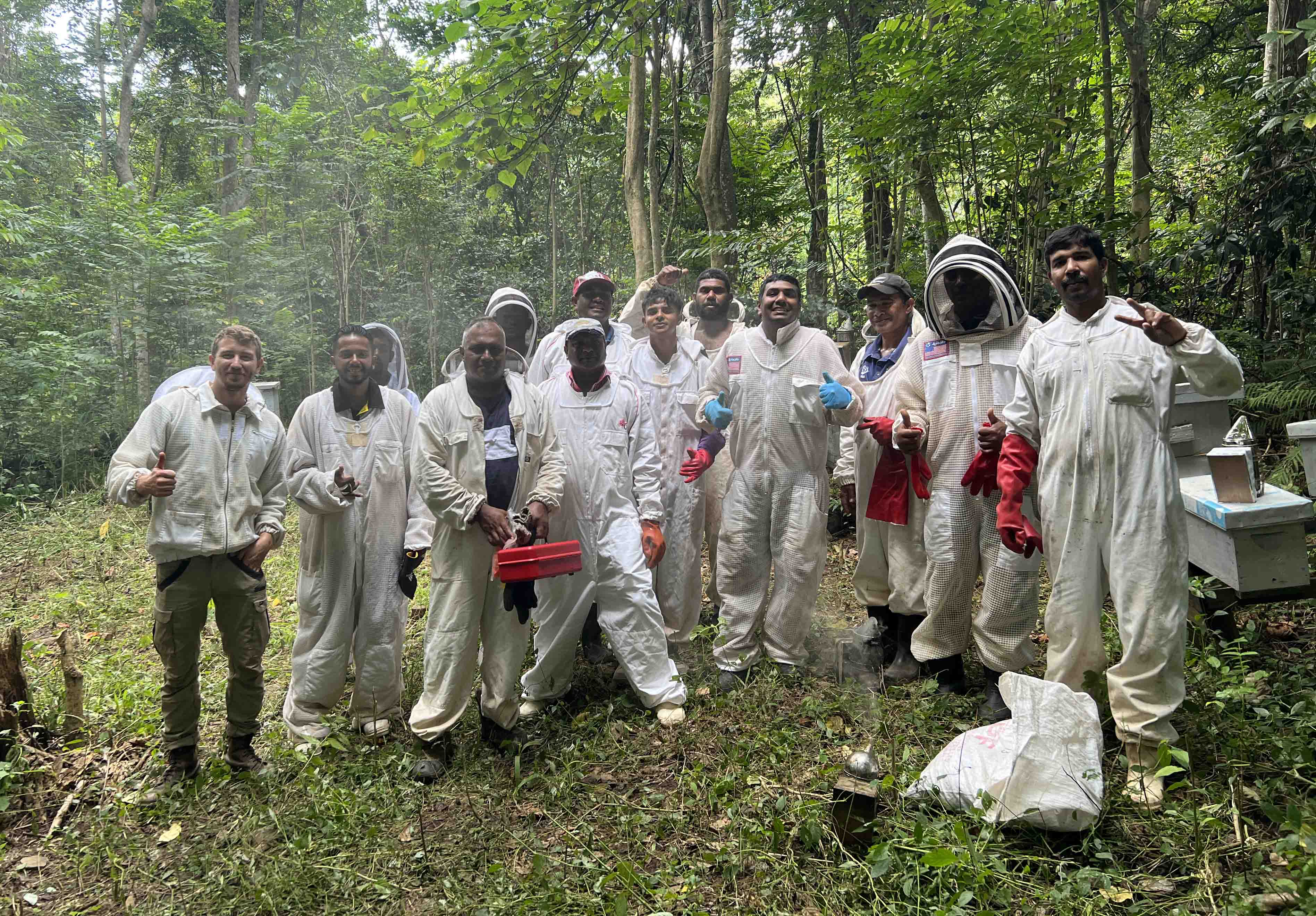The recent arrival of 20 breeder queen bees from Australia has marked a major milestone in an ACIAR-funded project effort that aims to improve the productivity and profitability of smallholder beekeepers. The research effort includes a genetic improvement program, collaborative activities for regional honey bee biosecurity, improved market access, and the creation of opportunities to better support the economic empowerment of women and youth in beekeeping industries.
The 4-year project is led by Southern Cross University (SCU) and works across Papua New Guinea and Fiji in partnership with local agricultural ministries and beekeeping associations.
Project Leader from SCU, Dr Cooper Schouten said that bees are crucial to pollination-dependent horticultural industries and can be an excellent way of making money without exacerbating environmental degradation.
'Often, when people think about bees, they think about honey, but bees have much more to offer than just honey! Honey bees contribute significantly to GDP through pollination services, providing around a third of the food we eat,' said Dr Schouten.
'Beekeeping has a negligible carbon footprint and honey bees produce wax and propolis, which can be developed into profitable products. Bee products have important health properties, and honey doesn't readily spoil, so it can be sold in times of financial hardship.

'Also, beekeeping doesn't require access to secure land tenure, which can be a major problem for rural families,' explained Dr Schouten.
'The beekeeping industries in the Pacific have a lot to offer with strong domestic demand for honey and with increasing quality and capabilities, there is potential for export markets.
'Despite the benefits, attrition amongst beekeeping adopters is a chronic issue, and honey production, profitability and technical skills among farmers remain underdeveloped. Additionally, economically significant honey bee pests threaten the continued viability of the sector and the subsequent ability for bees to support pollination-dependent horticultural crops.
'Families cannot be expected to run profitable beekeeping businesses after being donated hives and given a week of training. Bees, like other livestock, are not happy and productive if they are left in a field; they become a biosecurity problem and a financial burden,' said Dr Schouten.

'Our team's research and training exemplify approaches to support organisations to implement effective beekeeping programs that grow inclusive family businesses and strengthen Pacific beekeeping industries.
'In addition to biosecurity and pest and disease management, understanding honey bee nutrition and genetics are critical to success. Defensive bees are not that fun to work with and impede good hive management,' added Dr Schouten.
Honey bees can be bred for various traits, including colour, temperament, and production, and similarly to laying hens, queen bees don't lay eggs productively forever.
Dr Schouten explained that regular requeening of bee colonies is vital to maintaining healthy productive hives and that young quality queen bees are critical to beekeeping business profitability and production. The research shows young queens produce significantly more honey and have substantially lower swarming tendencies than older queens.






